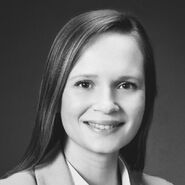Effects of stressor hierarchies on river microbial communities during degradation and recovery from drought
![]()
![]()
![]()
![]()
![]()
![]()
![]()
![]()
Project leaders
According to A02’s results obtained in Phase I, microbial degradation of dissolved organic carbon (DOC) and necromass are hardly affected by moderate temperature and salinity stress in mesocosms. In contrast, more controlled microcosm experiments show effects. We hypothesise that the two stressor effects are supressed by a dominant third stressor, i.e. the availability of organic carbon, or, more generally, energy flux. In Phase II, we will therefore test a newly derived hypothesis: Microbial community composition and functioning are affected by a hierarchy of stressors, i.e. energy flux (1st level), and other factors like temperature and salinity (2nd level). We will test this hypothesis in experiments with sediment-filled glass columns, in which energy flux is regulated by the concentration of the carbon source and the advective flow velocity, causing a gradient from diffusion-limited microbial activity in stagnant water to kinetically-limited microbial activity under saturated advective transport. We will also test whether energy flux controls the degree of degradation and recovery and thereby the degree of asymmetry of microbial community assembly processes between degradation and recovery, as proposed by the asymmetric response concept (ARC). From the synthesis of the overall RESIST results of Phase I, if further became obvious that a concept for ecosystem assessment with microbes is missing, unlike for many other riverine organism groups. We will therefore develop a new concept for a microbial degradation index that is easily applicable and allows assessing whether the ecosystem status of a putatively recovered microbial community is impacted by water quality. The new concept will rely on ratios of microbial taxa with conserved functions that are expected to correlate with stress intensities. In contrast, correlating single taxa with environmental variables failed in the past due to the functional redundancy of microbial species and depletion of the resource. Taxa with conserved function exist e.g. in the aerobic and anaerobic nitrogen cycle, among methanotrophs or sulfate reducers, and can be quantified using 16S rRNA gene amplicon sequencing. The new index will be developed based on field data and applied to the communities observed in the experiments on stressor hierarchies. It will indicate whether and to what extent a stressor-induced shift in microbial community composition also implies a shift in ecosystem degradation state. Finally, we will evaluate how far the new concepts of stressor hierarchies and microbial degradation index can explain and measure the responses of microbial communities in rivers exposed to severe drought stress, which will be studied under near-natural conditions in the RESIST-field flumes.

Daria Baikova (University of Duisburg-Essen)
Effect of multiple stressors on microbial DOC degradation
Dissolved organic carbon plays an important role in biogeochemical cycling. It serves as the main source of organic nutrients and energy in freshwater systems. Microorganisms are the key players in DOC degradation, which is of major importance for the functioning of river ecosystems. Microbial degradation of DOC in rivers is often nutrient-limited and consumes dissolved oxygen, which is the dominant parameter influencing macroorganisms in aquatic ecosystems. Since sensitive macroorganisms respond greatly to changes in oxygen concentration, already small changes in DOC degradation will lead to significant ecosystem effects.
Microbial DOC turnover in rivers is studied to a limited extent and it is so far unclear how it is affected by elevated temperature and salt levels. This project contributes to the investigation of the effects of these stressors on bacterial communities and their function to degrade DOC. Firstly, the natural variation in DOC degradation in rivers Boye and Bieber will be determined in a 2-year monitoring project. The relevance of different stressors will be assessed by relating stressor-induced changes to natural environmental fluctuations due to seasonal changes. As bacterial mineralization of organic carbon leads to carbon dioxide release, the latter will be monitored to assess the efficiency of DOC degradation with the help of reverse stable isotope labelling (RIL). Additionally, the dynamics of absolute prokaryotic abundance and species composition using flow cytometry and 16S rRNA gene amplicon sequencing will be monitored. The limitations of degradation such as nutrient availability will be also investigated. Secondly, the acute and long-term response of DOC-degradation to the stressors temperature and salinity will be investigated in microcosms in isolation as well as in combination. Lastly, the effects of multiple stressors on DOC degradation and community composition will be investigated in the mesocosm experiments AquaFlow.
Contact: daria.baikova@uni-due.de
First Supervisor: Prof. Dr. Rainer Meckenstock (University of Duisburg-Essen, Aquatic Microbiology)
Second Supervisor: Dr. Verena Brauer (University of Duisburg-Essen, Aquatic Microbiology)
Mentor: Dr. Thomas Held (Arcadis Germany GmbH)

Una Hadziomerovic (University of Duisburg-Essen)
Effect of multiple stressors on microbial biomass recycling
Aquatic ecosystems regulate vital environmental services like water purification. The functioning of an aquatic ecosystem is to a considerable extent driven by microorganisms, which recycle nutrients and carbon from dead biomass (necromass) within the so-called microbial loop.
The aim of this project is to investigate the effects of the stressors salt and temperature on a specific process within the microbial loop, namely the recycling of bacterial necromass, in river ecosystems. We will study the natural extent of bacterial necromass degradation in two rivers during a 2-years long monitoring project. To assess the acute and long-term stress response of bacterial necromass recycling we will investigate the effect of different intensities of the stressors salt and temperature in microcosm experiments as well as in the mesocosm experiments AquaFlow and ExStream.
Bacterial necromass recycling will be measured by adding 13C-labelled E. coli necromass to environmental samples in microcosms. The degradation activity will be measured over time as 13CO2 evolution with a Picarro G2131-i Isotope and Gas Concentration Analyzer with Auto Mate FX. To determine whether bacteria or protists are responsible for bacterial necromass degradation, specific growth inhibitors will be used. Stable isotope probing (SIP) will be applied to identify necromass degraders based on the incorporation of the 13C into the DNA of the necromass degraders during growth.
Contact: una.hadziomerovic@uni-due.de
First Supervisor: Prof. Dr. Rainer Meckenstock (University of Duisburg-Essen, Aquatic Microbiology)
Second Supervisor: Dr. Verena Brauer (University of Duisburg-Essen, Aquatic Microbiology)
Mentor: Dr. Thomas Held (Arcadis Germany GmbH)
